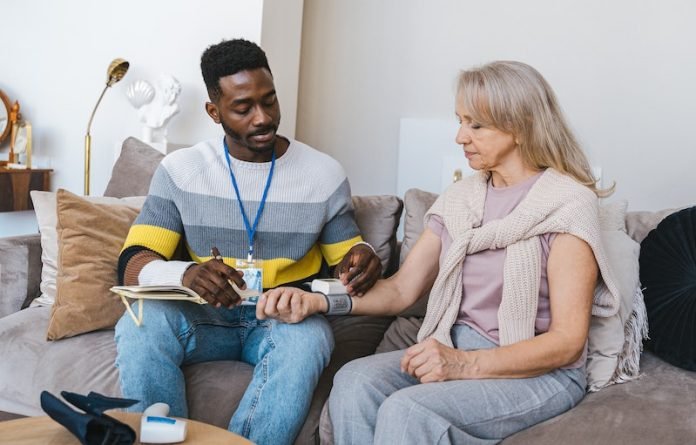
A recent study from Columbia University has found that a commonly prescribed diuretic for lowering blood pressure, chlorthalidone, may have more serious side effects than a similar drug called hydrochlorothiazide, which is equally effective.
The study involved 17 years of data on over 730,000 people who were treated for high blood pressure.
Researchers found that chlorthalidone and hydrochlorothiazide were equally effective at preventing heart attacks, hospitalizations for heart failure, and strokes.
However, patients taking chlorthalidone were almost three times more likely to develop dangerously low levels of potassium, and had a higher risk of electrolyte imbalances and kidney problems than those taking hydrochlorothiazide.
These side effects can lead to abnormal heart rhythms, low sodium levels (hyponatremia), confusion, kidney failure, and even type 2 diabetes.
The study found that 6.3% of patients treated with chlorthalidone experienced hypokalemia (low blood potassium) compared to only 1.9% of patients treated with hydrochlorothiazide.
Even at lower doses, hypokalemia rates remained higher for patients taking chlorthalidone.
While chlorthalidone is currently recommended over hydrochlorothiazide in treatment guidelines, this study raises concerns about the safety of the drug.
Doctors prescribing chlorthalidone should monitor patients for certain side effects. It is not the first study to identify side effects associated with chlorthalidone, as a previous observational study also found a link between the drug and electrolyte imbalances.
How to treat high blood pressure
High blood pressure, also known as hypertension, is a common health condition that can lead to serious complications such as heart attack, stroke, and kidney disease.
Fortunately, there are several ways to treat high blood pressure, including:
Medications: There are several types of medications that can help lower blood pressure, including diuretics, ACE inhibitors, beta-blockers, calcium channel blockers, and others.
Your doctor will determine the best medication(s) for you based on your individual health needs.
Lifestyle changes: Lifestyle changes can help lower blood pressure and include things like losing weight, eating a healthy diet that is low in salt and high in fruits and vegetables, getting regular exercise, limiting alcohol intake, and quitting smoking.
Stress management: High levels of stress can contribute to high blood pressure. Finding ways to manage stress, such as practicing relaxation techniques like meditation or yoga, can be helpful.
Regular check-ups: It is important to have regular check-ups with your doctor to monitor your blood pressure and make any necessary adjustments to your treatment plan.
Home monitoring: Your doctor may recommend that you monitor your blood pressure at home using a blood pressure cuff. This can help you keep track of your blood pressure and provide important information to your doctor.
It is important to work closely with your healthcare provider to develop an individualized treatment plan for high blood pressure.
By following your treatment plan and making necessary lifestyle changes, you can help lower your blood pressure and reduce your risk of complications.
If you care about blood pressure, please read studies that 3 grams of omega-3s a day keep high blood pressure at bay, and this common plant nutrient could help reduce high blood pressure.
For more information about nutrition, please see recent studies that green tea could strongly reduce blood pressure, and results showing marijuana may strongly increase death risk in high blood pressure.
The study was published in JAMA Internal Medicine and conducted by George Hripcsak et al.
Copyright © 2023 Knowridge Science Report. All rights reserved.



